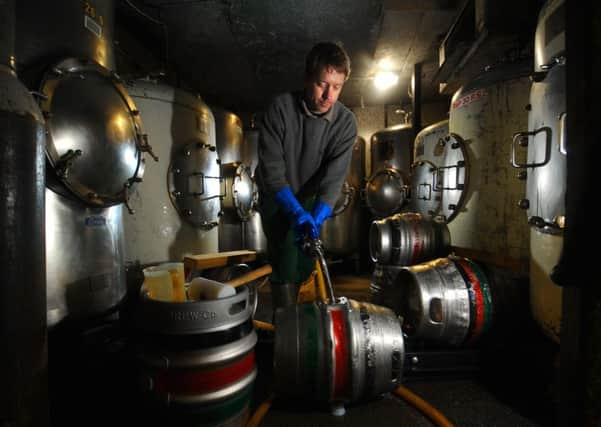On the rise: Yorkshire beer houses where community spirit is still on tap


“Everybody is drunk. Those who are not singing are sprawling,” wrote one critic of the 1830 Beer Act, which allowed anyone with a house to brew his own beer and sell it, for a single payment of two guineas.
Within 11 years, there were 45,000 of the new “beerhouses”, but their numbers fell away when their owners realised they could no longer make a profit.
Advertisement
Hide AdAdvertisement
Hide AdNow, however, with the decline of the traditional tied house and of pubs owned by breweries, a new generation of beerhouse is on the rise.
A report today from the Society of Independent Brewers says that tap rooms and other retail outlets created by the region’s growing community of small craft breweries is helping to fill the void left by the closure of older-established pubs.
The report says 10,000 pubs have closed in the last 15 years, many in rural and suburban areas, and that the increase in the number of brewers building tap-rooms to serve beer direct from their breweries has helped cement them at the centre of their communities.
At Birkby, near Huddersfield, the 15,000 sq ft tap room at the far end of the Magic Rock brewery is a modern-day recreation of the 19th century beerhouse. Like those of long ago, only the house beers - American-style craft ales, stouts and pales - are on sale, along with a small selection of wines. There are no spirits.
Advertisement
Hide AdAdvertisement
Hide Ad“You’re coming to drink beers that are made here,” said the founder and managing director, Richard Burhouse.
A concession to the 21st century is the addition of pub “street food”, served up by independent traders operating out of vans.
“We just charge them a small pitch fee and the rest of the takings are theirs,” Mr Burhouse said.
Birkby has lost at least two pubs in recent years - one is now a supermarket, the other a delicatessen.
Advertisement
Hide AdAdvertisement
Hide AdMr Burhouse blames the decline of old-fashioned pubs - which, he believes, has contributed to the deterioration of local society - on the promotion of cheap alcohol in supermarkets.
“Across the area there are pubs closing all the time while people drink more at home, in unsupervised environments,” he said.
“People are not socialising in the way they used to. The pub was the place people shared stories .
“I love the community vibe. It’s where you get to meet people.”
Advertisement
Hide AdAdvertisement
Hide AdThe Northern Monk brewery, in Holbeck, Leeds, which produces 1.2m litres of beer a year, has also set up its own tap room.
The surrounding streets have seen their quota of traditional pubs decimated over the last few years, but the takeover and conversion of an old three-storey flax store by the three year-old business has added a “refectory” and function room to the area.
“There has been no real investment around here for years,” said Northern Monk’s finance manager, Bridget Pottinger. “It’s wonderful to be able to go into town, but there is still a need for people wanting a couple of drinks in the evening.”
Mike Benner, managing director of the society behind today’s report, said: “Britain’s small brewers are now a common feature of communities and are just as much a part of the local social and economic fabric of the communities they serve as pubs - creating jobs, supporting local charities and providing a place for the community to come together in the brewery tap.”